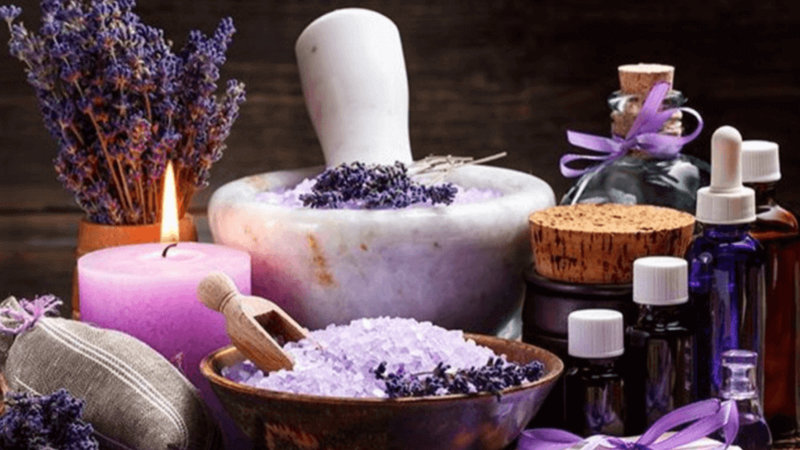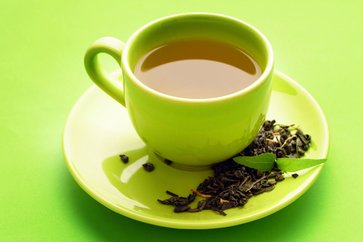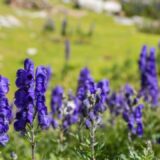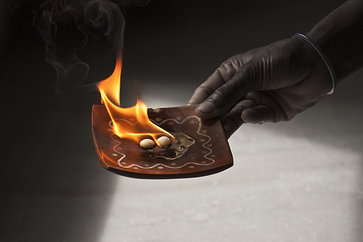Aromatherapy-The Use Of Essential Oils In Ayurveda
What is aromatherapy? Aromatherapy is a preventive and curative application technique based on essential oils.
It is a therapeutic tool brought from alternative medicine, which puts the properties of plants at the service of health.
Through this technique, the physical, mental, and emotional balance is sought, being applied, through the therapeutic and aromatic properties of the plants.
It is a discipline complementary to traditional medicine to accompany and improve processes. The use of essential oils for health can be used through massages, aromatize an environment, or apply directly to any area of the body to calm or reduce a condition.
The application of aromatherapy is primarily aimed at reducing discomforts such as pain, emotional imbalances, skin problems, or digestive problems.
Its relaxing, anti-inflammatory, antiseptic, and analgesic properties make it an ideal complement for minor disorders or in any healing process.
The main senses involved in this therapy are smell and touch, since aromatic properties promote relaxation, sedation, contributing, therefore, to generate a more balanced emotional and mental state, which accelerates the healing process. The smell is linked to emotions, so pleasant smells will trigger emotions and pleasant memories.
We could say, that aromatherapy, although it lacks curative effects, prepares our emotional world, through smell and touch to deal with the situations presented to us in a more balanced way, whether they are physical illnesses, mental or emotional.
Aromatherapy & Essential oils
Essential oils are concentrated from plants, so they have to be diluted in liquid products that minimize their potential, either another less concentrated oil or in water.
Its use is usually external, to smell it (steam inhalations, burners) or to apply on the skin, previously diluted, either in specific areas with a poultice or through aromatic baths or massages.
To obtain the essential oils you can use both the root and the leaf, the flower, or the seeds of the plant. There are many plants so there are many essential oils, so we will only name some of them.
Each essential oil, according to the properties of the plant, exert different functions, as we learn below a few of them:
- Lavender: It promotes sedation, regulating high blood pressure and headaches.
- Rosemary: It promotes relaxation and contributes to blood activation.
- Ginger: It helps to open the airways and strengthen the immune system. It also facilitates digestive processes, restoring symptoms such as nausea and dizziness.
- Cypress: It provides a calming effect on the nervous system.
- Geranium: Its revitalizing effect helps in depressive processes.
- Tea tree: It is known for its antiseptic properties.
Essential Oils & Ayurveda
In Ayurveda, essential oils are applied through massage. Both the massage and the oil or oils to be applied must take into account the specific characteristics of the doshas.
For Ayurveda, it is very important to combine the different oils in the application of a treatment. An appropriate combination can contribute to the balance of the three doshas.
For the application of massages, Ayurveda uses base oil, which will depend on the dosha that you want to balance.
In addition to the work that is done with the movements of the massage, the oil helps the elimination of toxemia, relaxation, the increase of Agni and Ojas, and, of course, the nutrition and health of the skin.
The base oil must be of quality, ecological, and (cold press )first pressing. Among the main base oils, medicated or not, and adapted to constitutional types, we can mention
- Vata: Sesame, Ghee, Almond, Olive
- Kapha: Tea Tree, Mustard, Corn oil, Lavender, Peppermint
Essential oils for every dosha
- Pitta: all those oils that help eyesight, skin, and hair problems, as well as promoting sedative and relaxing effects (chamomile, Neem, peppermint)
- Vata: oils that help in digestive processes and that promote a balanced mood (ginger, Bergamot, lemon, thyme, Ashwagandha, licorice)
- Kapha: for this dosha, the most suitable oils are all those that help in digestive processes and facilitate physical and mental decongestion, as well as being stimulants and revitalizing (eucalyptus, sage, thyme, turmeric)
Besides, some essential oils are suitable for balancing the three doshas, such as rosemary, cinnamon, geranium, among others.


























